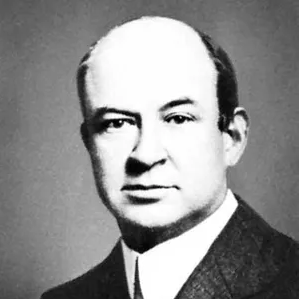John Spencer Bassett served as executive secretary of the American Historical Association from 1920–28. He taught at Trinity College (now Duke University) and Smith College. He earned his PhD from Johns Hopkins University in 1894 with the dissertation, “The Constitutional Beginnings of North Carolina, 1663–1729.” Bassett passed away January 27, 1928.
In Memoriam
From the American Historical Review 33:3 (April 1928)
Through a tragical accident in the streets of Washington, January 27, the American Historical Association has to mourn the loss of its devoted secretary, Professor John Spencer Bassett of Smith College, who died in the full vigor of his remarkable powers of work at the age of sixty. He had been professor in Smith College since 1906; for thirteen years before that he had been professor in Trinity College, now Duke University, active in all its progress and for some years editor of the South Atlantic Quarterly. His earlier publications concerned the history of North Carolina, relating to its constitutional history, the Regulators, and slavery. In 1905 he contributed a volume on the Federalist period to the American Nation series. His best known work, aside from his Short History of the United States, a widely used text-book, was his Life of Andrew Jackson (1911), an admirable biography, based on thorough research, sympathetic yet discriminating, and highly readable. He edited for the Carnegie Institution of Washington the Correspondence of Andrew Jackson, of which three volumes have been published, and the remaining three were left by him in shape for publication. His tireless labors also included a book on The Middle Group of American Historians (1917) and a history of Our War with Germany (1919), and a few days before his death he had read the last proofs of a volume on the history of the League of Nations, whose operations he had had especial facilities for observing in a leave of absence during the preceding year.
Professor Bassett became secretary of the American Historical Association in 1919, and for eight years he devoted to it unstinted time and labor and his best thought. His intelligent oversight of its affairs, and especially his zealous labors in the Committee on Endowment, will be greatly missed. Most painful, however, is the loss of his genial presence, for he was the soul of good nature, a man of universal friendliness, thoughtful, kind, considerate, and tranquil, although on the most critical occasions of his life he had shown that, with all his amiability, he had abundance of manly courage and devotion to principle.
